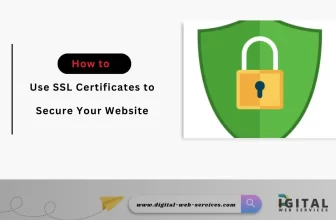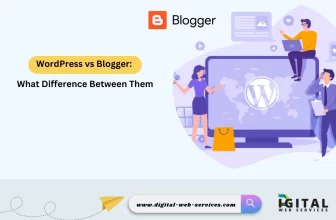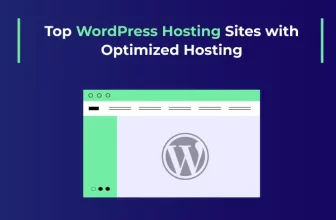
You’ve got your WordPress website up and running, that’s cool! But have you taken the necessary steps to secure it?
Ensuring security is an essential part of a webmaster’s workflow. Similar to how you would protect any asset you own, ensuring the security of your site is something you don’t want to lag behind in.
For example, you wouldn’t just leave your car, home, or office desk unlocked, now would you? You would take steps to ensure that it is somewhat secure. If you feel that it’s not enough, you would take the extra steps to gain the peace of mind that it’s secure.
On WordPress, ideally, you would want the same level of security or higher. The problem is, that many website owners fail to secure it. Their reasons usually border on the notions of, “What could go wrong?”, and “My business is small, who would want to hack it anyway, I’m not a corporation”.
You would be surprised how WordPress hackers don’t discriminate on the type of business you’re running. Big or small, when the damage is done, you’ll be left with regret.
We’ve written this article to help you avoid that feeling. In this short primer, you will learn about the essentials tips you can apply to make your WordPress site more secure.
1. Install a Security Plugin
This one’s a given. You’re running a business and can’t be bothered with maintaining security all the time.
A WordPress security plugin can help you automate your site’s security. All you have to do is to install it and it keeps monitoring your site on your behalf. If the plugin finds something is off with the website, then it notifies you to make the change.
WordPress has a wide variety of powerful security plugins that you can use. That said, we would recommend you to go with either WordFence or Sucuri. Both of them come with tons of handy features that beef up your site’s security.
2. A Strong Password Goes a Long Way
Once you’ve installed a security plugin, the next easiest step is to make your password as strong as possible.
You might be tempted to think that, “Hey, this one is so obvious. There is no way someone doesn’t do this” but you’d be surprised at the number of people who still set their username as “[Login]” or “Username” and their passwords as “password” or “password123”.
These weak password variations are the root cause why password-guessing hacks are still prevalent. To avoid getting hacked because of such an issue, you can improve the strength of your password.
We would recommend you try out a new password using a Random Password Generator. If you feel you can’t remember it all, then you can install a password management system like LastPass or Passbolt.
3. Keep Your WordPress Updated
WordPress Updates, whether it be for plugins, themes or the core, are released for a reason. The new versions are tested and released to be free from bugs, have new features, and be overall secure than its predecessor.
But even then, it’s not secure from hackers. Matter of fact, the race between software companies and hackers is always a toe-to-toe competition.
When WordPress releases a new update, they gain the lead. But over time, the update gets cracked and the hackers stay in the lead until WordPress releases a new update. The cycle keeps repeating.
Because WordPress is constantly updating its software, there is no reason not to install an update when it’s available. But many don’t.
Why, you might ask? The justification revolves around their fear of breaking their site’s theme or plugin functionalities. While it is somewhat of a valid justification, a quick reevaluation of your site’s plugin and theme strategy can solve this problem. You can contact a reputable WordPress Development Agency to make the necessary changes to your themes and plugins.
If you don’t update your WordPress for the sake of your themes and plugins, you’re trading off your site’s security to a possible code attack on the very theme and plugin you wanted not to break.
4. Have A Secure Username
As touched upon in tip #2, having a username like “admin” or “[login]” is very basic and changing it can make it harder for hackers to gain access to your website.
But it’s not the greatest security achievement. Sure enough, hackers can find out your username through blog posts and other means. Your goal, therefore, should be to create a username that isn’t obvious and can’t be found out.
Changing the username to something vague and unidentifiable to the hacker, and a strong password can give the added layer of security to your wordpress site that it deserves. If you have a security plugin like WordFence installed on your computer, then hackers cannot possibly hack your site.
Why? Because WordFence blocks the IP addresses of individuals looking to access your website.
5. Protection from Brute Force Attacks
Brute force attacks are commonplace on the internet. WordPress users, in particular, can witness (through WordFence reports) plenty of brute force attacks on a daily basis. Even with the most sophisticated of security upgrades, you cannot save yourself from these attacks.
They’re a nuisance, and here to stay. So, what can you do? Make sure that your site blocks out these hack attempts before they become successful.
You’re not powerless but without staying vigilant, you can become so. Here’s how to secure yourself against Brute Force Attacks:
- Most web hosts provide protection against brute force attacks. If your web host subscription doesn’t provide such a functionality, it’s better you upgrade to a web host or package that does.
- All of the tips we mentioned before this? Make sure you’ve applied them all.
- Install a security plugin that blocks out any IP address that tries to use multiple attempts (guesses) to log in. We’ve found that the WordPress plugin Limit Login Attempts does a really good job in this matter.
6. Malware Monitoring
It’s imperative that you have some kind of system in place to constantly monitor your site for malware. The developers at WordFence ensure malware monitoring. Their system tracks malware and if there is malware, then it either blocks or reports the malware to you.
With the reports in hand, all you have to do is secure your WordPress site.
Always Stay Vigilant
We conclude this article by stating that even with all the security measures in place, you can’t sit back and relax knowing that nothing could go wrong with your site.
After applying these tips, your site will indeed be secure but that’s where you need to be active and stay vigilant regarding any suspicious activity on your website.
We’ve seen cases of people not focusing on their site after securing it only to find themselves getting compromised.
Avoid regret, stay vigilant. Thanks for reading.
Digital Web Services (DWS) is a leading IT company specializing in Software Development, Web Application Development, Website Designing, and Digital Marketing. Here are providing all kinds of services and solutions for the digital transformation of any business and website.










